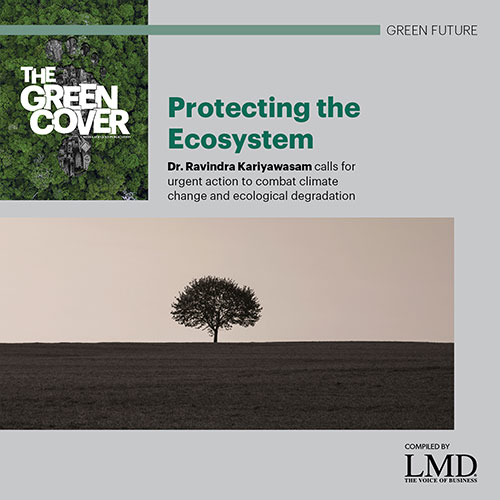WILDLIFE CONSERVATION
Marine Conservation Crisis
Prof. Terney Pradeep shares insights into the current challenges facing Sri Lanka’s marine environment

Q: How would you describe the current state of Sri Lanka’s marine and coastal biodiversity?
A: Sri Lanka’s marine and coastal biodiversity is under significant threat. While some areas remain relatively healthy – climate change, overfishing, illegal practices and rapid coastal development are driving a steady decline.
Enforcement of existing laws is often weak, and this allows critical ecosystems such as coral reefs and seagrass beds to deteriorate. The decline isn’t only environmental – it’s also affecting coastal communities that rely on marine resources. If the current trend continues, the country could face serious consequences.
Q: What are the biggest challenges in protecting Sri Lanka’s endangered marine species?
A: The biggest challenge is ongoing human interference. Hunting, harassment and illegal trade continue despite legal protections. Sea turtle nests are raided, protected marine species appear in markets and irresponsible whale watching disrupts natural behaviour. These actions highlight a gap between laws and actual practice.
Law enforcement is weak and public awareness is low. Many people don’t grasp the ecological importance of these species. Stronger enforcement, better education and active community involvement are essential to ensure their survival.
Q: How effective are the country’s marine protected areas (MPAs) in conserving biodiversity?
A: While the MPAs in Sri Lanka have the potential to protect marine biodiversity, their effectiveness is currently limited by poor enforcement and inadequate management.
Though some MPAs cover important ecosystems such as the Hikkaduwa Marine National Park and Bar Reef Sanctuary, many still face disturbances from unregulated tourism such as swimming, turtle feeding and boat activity. Even more damaging are the ongoing illegal fishing practices.
Many MPAs exist only in name and offer little real protection. Local communities are often left out of the process and may not fully understand the importance of these areas. As a result, key species are still being overfished even within protected zones. With stronger enforcement, community involvement and sustainable tourism practices, MPAs can be far more effective.
Q: What steps should be taken to strengthen marine wildlife conservation efforts in Sri Lanka?
A: Strengthening marine conservation in Sri Lanka requires better enforcement and increased public engagement. Enforcement agencies need more resources such as patrol boats, surveillance tools, trained personnel and stronger coordination mechanisms.
The government must prioritise marine protection by funding key departments such as Wildlife, Fisheries and Coast Conservation, and also foster collaboration between them. A joint effort by the authorities and communities could ensure meaningful progress.
Prof. Terney Pradeep
Professor in Oceanography at the Department of Oceanography and Marine Geology, University of Ruhuna
Director General of the Coast Conservation and Coastal Resources Management Department








